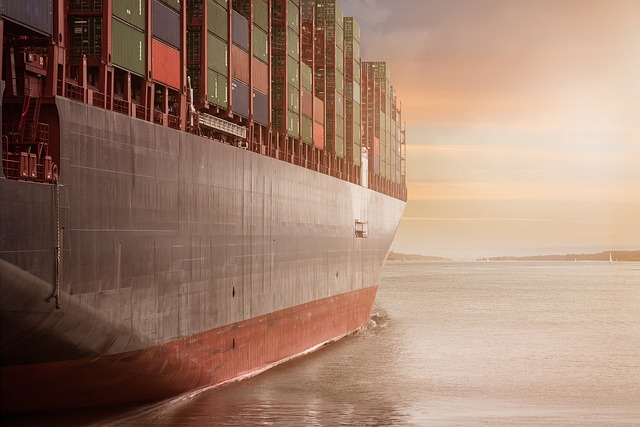-
The Department of Transportation has expressed its supports for a Lower House bill seeking to regulate local charges by international shipping lines
-
House Bill 1397 aims to protect the domestic export and import sectors from “excessive and unnecessary fees, charges and surcharges” including management fee on empty containers imposed by the ocean liners
-
Under HB 1397, appropriate taxes will be imposed on all revenues generated by international shipping lines from approved local charges for services within the Philippines
The Department of Transportation (DOTr) is supporting a bill that seeks to regulate local charges of international shipping lines.
“The Department is advocating as a priority bill House Bill (HB) 1397, which aims to regulate the application of local charges of destination imposed by international shipping lines,” DOTr Undersecretary for Planning and Project Development Timothy John Batan said in a presentation during the Transport and Logistics Forum on October 21.
“The proposed bill aims to protect the interest of consumers, promote general welfare and establish the standards of conduct for business and industry, as well as enforce compliance with Incoterms (International Commercial Terms) for the protection and fair treatment of Philippine domestic manufacturers, exporters, and importers,” Batan added.
HB 1397, authored by Bagong Henerasyon Party List representative Bernadette Herrera-Dy, aims to “promote the competitiveness of the Philippine economy and protect the domestic export-import sectors from excessive and unnecessary fees, charges and surcharges imposed as origin or destination charges as well as unconscionable fees imposed on the management of empty containers by international shipping lines.”
Similar bills had been filed in previous Congresses but none of them has been passed into law.
In January, the Lower House passed the last one – HB 10575, which seeks to strengthen government agencies’ oversight on shipping charges by international shipping lines operating in the Philippines – on third and final reading, but Congress has changed without the bill being ratified by a bicameral conference committee.
Various stakeholders and business groups have supported these bills, noting that the high shipping charges “are caused by a lack of regulatory oversight as there is no agency assigned to oversee local charges imposed by international shipping lines.”
Under HB 1397, no origin and destination charges should be billed and/or charged by the international liners on Philippine consignees in the absence of a contractual relationship with the carriers, and/or if they are not obligated to pay them under Incoterms.
The bill states that quoted freight rates should be inclusive of all charges such as, but not limited to, terminal handling cost, container imbalance cost, emergency cost recovery charge, bunker price adjustment, bill of lading fee, import release fee, container cleaning, and seal fee, among others.
As a rule, if the Incoterm used in the supplier’s contract is “freight prepaid,” then all charges due should be collected and paid by the shipper at origin. If the Incoterm used in the supplier’s contract is “freight collect,” then all charges due should be borne and paid by the consignee.
Other local charges by international shipping lines that do business in Philippine ports “must be transparently clarified and justified” and explain the nature of such charges and the corresponding local services rendered in exchange, according to the bill.
All revenues that international shipping lines generate from approved local charges for services within the Philippines will be imposed appropriate taxes.
HB 1397 states that all container deposits must be refunded by the shipping lines and shipping agents within 15 days after the receipt of empty containers in the yard or container terminal of the shipping line.
Further, the cost of recovery of all international shipping lines for detention and demurrage charges should be “limited to the actual lease cost rate per day beyond the allowable free time granted by the shipping line to the consignee but under no circumstances to exceed the depreciated market value of the container.”
The bill also prohibits all international shipping lines from imposing an indirect lien and holding the release of a shipment because the consignee has outstanding demurrage and detention collectibles corresponding to a previous and different transaction.
International shipping lines will also be prohibited to withhold the refund of container deposits because the consignee has because the consignee has an outstanding demurrage and detention collectibles corresponding to a previous and different transaction.
The proposed measure is passed into law, it would be implemented by the Department of Trade and Industry, Bureau of Customs, Bureau of Internal Revenue, Department of Justice, and Philippine Competition Commission.
An oversight committee composed of representatives from eight government agencies and two Lower House committees will also be created to monitor the implementation of the proposed measure.
HB 1397 has been referred to the Lower House Committee on Transportation. – Roumina Pablo









